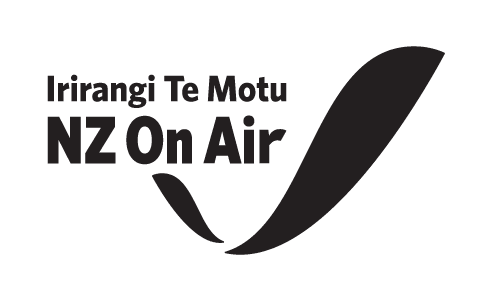It is Te Wiki o Te Reo Māori - National Māori Language Week. As part of it, kaupapa Māori reporter Matai O’Connor spoke to one of the many students of te reo Māori in Tairāwhiti to show how anyone can study the language.
 After being judged by others who said she wasn’t Māori because of how she looked, Annalise Eruera has been studying the language and reclaiming her identity to show her son how to be unapologetically Māori.
After being judged by others who said she wasn’t Māori because of how she looked, Annalise Eruera has been studying the language and reclaiming her identity to show her son how to be unapologetically Māori.
Eruera is of Ngāti Porou descent and throughout her early years learned te reo Māori at school, but at high school she encountered judgment and questions about if she “was actually Māori”.
“I had been taught te reo Māori at primary and intermediate in Pōneke and then I did one year in high school, but I didn’t continue studying it because of how I was made to feel by others.
“I have fair skin but I am Māori, but people wouldn’t think I am because I didn’t fit their idea of what Māori can look like. It made me feel like I wasn’t Māori.”
For a while, Eruera wouldn’t say she was Māori and stopped pursuing and speaking te reo Māori. Then in her 20s, she felt the call to speak the language and openly say she was Māori.
In 2017 she moved to Gisborne where she felt a connection to the whenua and a sense of community.
Her grandmother, who lives in Tikitiki, is fluent in te reo Māori and her parents always encouraged her to speak te reo.
“I am Māori and I know I am Māori, but back then I would only think I am ‘half-Māori’, but I am Māori no matter what.”
While living here and reconnecting to her Māoritanga, she became pregnant with son Mikaere in 2020.
During her pregnancy, she thought about her personal experiences and decided she didn’t want her son to go through what she did.
Eruera enrolled at Te Wananga O Aotearoa and starting studying levels one and two. She also planned for Mikaere to attend kohanga reo so they could korero Māori to each other.
Studying was the best decision she made, she said.
The kaiako (teachers) provided an open learning space where she could ask questions and not be afraid to say if she did not understand, she said.
“I want to learn and so if I don’t know, I am not scared to ask. It’s better to say you don’t know so that you can learn it properly.”
When she first started studying te reo, she recalled many words and waiata she had learned as a child.
“I was lucky to be able to access those memories I retained all along,” she said.
This year she began studying levels three and four.
“It’s been amazing studying te reo Māori and reconnecting with my identity.”
Mikaere is now 4 and attends kohanga reo where his te reo Māori me ona tikanga is a part of his day-to-day life, and he can kōrero Māori fluently with his mama.
“Living in Tairāwhiti and raising my son feels like home,” Eruera said. “I feel the connection to the place through my whakapapa.”
For anyone out there who is struggling with if they “are Māori enough”, or being judged by others, Eruera says do not listen to them; just continue being yourself.
“Knowing who you are and embracing your identity I think helps you be a better person and in turn makes the world a better place.
“If you are Māori, don’t be afraid to be Māori.”










0 comment
JOIN THE CONVERSATION
Read and post comments with a
Newsroom Pro subscription.
Subscribe now to start a free
28-day trial.